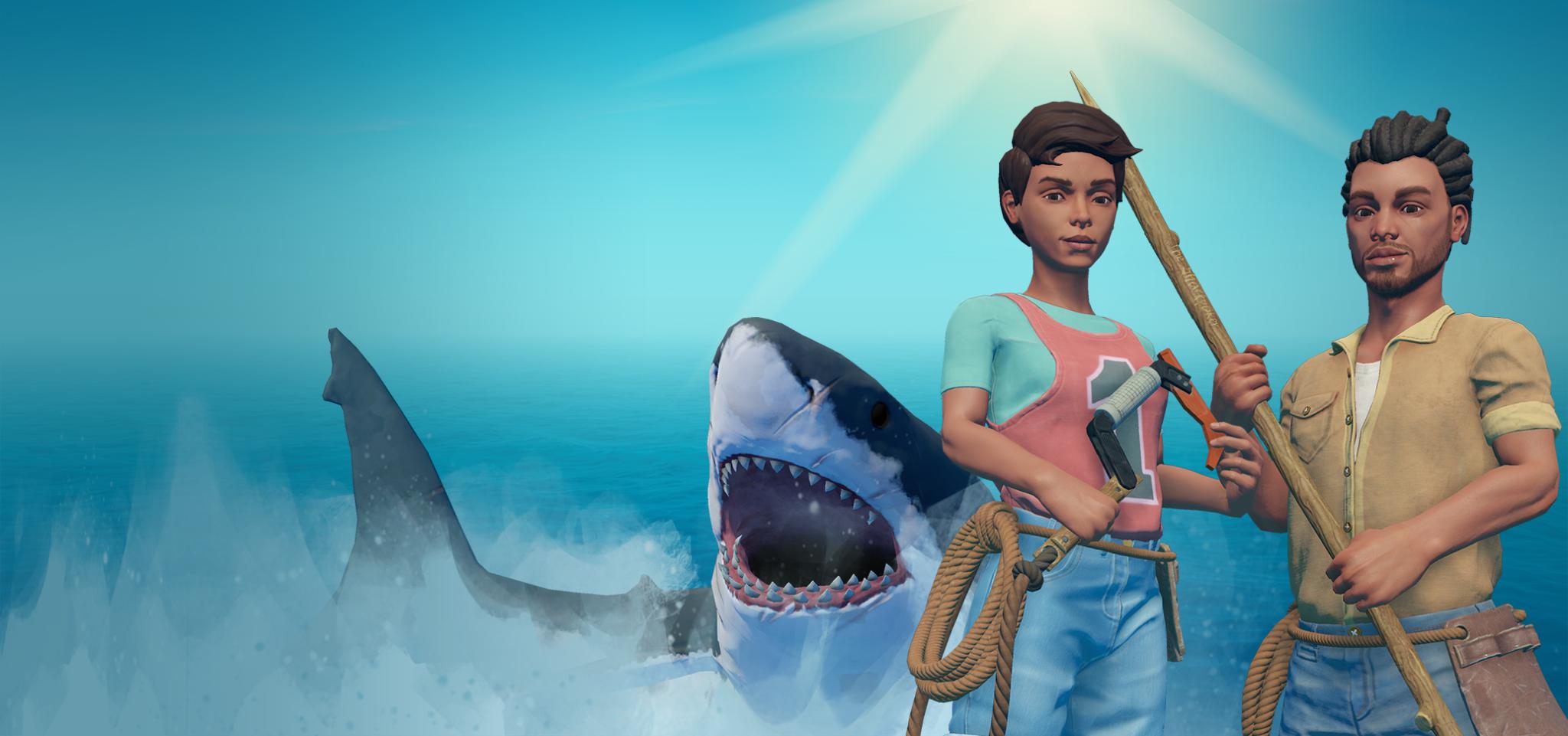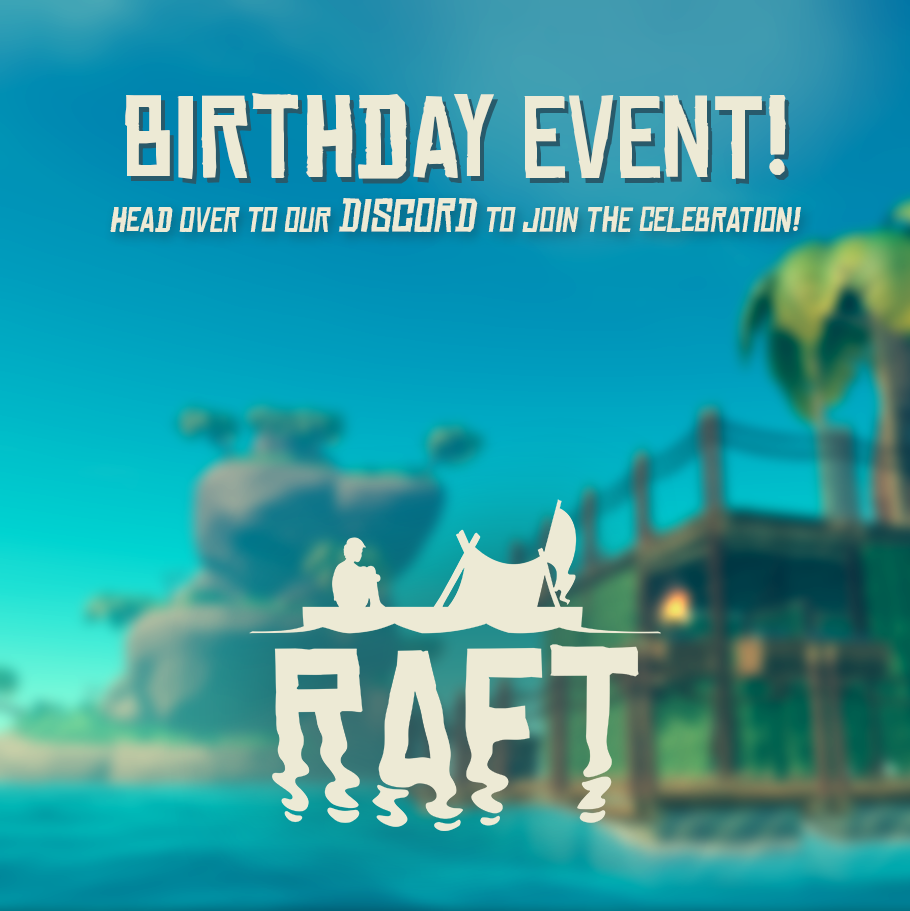A lot of indie games are the product of personal passion, of a need to tell a specific, individual story. So when André Bengtsson, artist and one third of the design team at Swedish studio Redbeet Interactive, tells me about the origins of their game Raft it's refreshingly different. "We were doing a course in university where we were supposed to find a market for a game and deliver a game to that market," he explains succinctly. They certainly succeeded at that. The Early Access version has been in Steam's top 10 sellers since it launched, and is number three right now.
Raft is a survival game set on the ocean, where you start with four squares of wood beneath your feet and a hook-rope in your hand. You throw the hook to grab junk as it floats by, which you craft tools and expand the raft with. Meanwhile a shark circles, occasionally trying to take a chunk out of your raft and making it risky to just swim out into the trash stream to grab stuff as it floats past.
I have thalassaphobia, a fear of the sea, and I play games like Abzu and Subnautica as a way of confronting that in a safe environment. In games it's normally underwater predators or leviathans who have eyes as big as my body that set off my phobia, but Raft hits a less rational side of that fear: it's the endless unbroken horizon and the occasional unsteady swell of waves beneath my feet that make it frightening. That said, when I fell off the raft and the shark bit me I swore so loud the dog came in to check I was OK.
I can't remember which channel it was, but it was a Russian YouTuber with like 300k subscribers or something that first picked it up from itch. After that it just started snowballing.
Andr Bengtsson
Funnily enough, Raft didn't even have a shark in it at first. "It was just you hooking stuff and expanding the raft," Bengtsson says. "We felt like we needed something that put some tension into it basically, and kept you from just going into the water." That it does. Being interrupted by a sudden shark attack when you're in the middle of trying to craft a sail or fishing rod makes Raft dramatic, in a way that makes it perfect for streaming.
When the three students finished their course, they uploaded the prototype to itch.io, where you can still get it for free. That version doesn't have multiplayer, you can only swim on the water's surface, and a lot of other features are missing, but as bare bones as it was, it didn't take long to find players. Bengsston recalls, "It was like three, four days after we released the prototype on itch when—I can't remember which channel it was, but it was a Russian YouTuber with like 300k subscribers or something that first picked it up from itch. After that it just started snowballing."
At first it was just big in Russia, but within weeks players from other countries picked up on it too. One of the earliest of America's big-name YouTubers to play Raft was Markiplier, who also has thalassophobia, and plays games about drowning and shark attacks as part of a series called "F*ck the ocean". That one-year-old video has over three million views.
Even so, the glory days of YouTubers making or breaking indie games like Goat Simulator are behind us. Games with comedy physics or the occasional horror game still benefit from the 'tuber bump, but the most popular channels have audiences who are there for the personality behind them, not for game recommendations. Steam is full of indie games that didn't top the charts in spite of the number of views their Let's Plays racked up.
When Redbeet launched the Early Access version on Steam, complete with multiplayer, they weren't convinced it would sell. "Not as well as it did," Bengtsson says. "We expected it do well, because we already had a community from the itch prototype and we were keeping in touch with some YouTubers, stuff like that. We thought it would be an OK release and we were hoping for a great release, but this was beyond what we expected, definitely."
As for why theirs has been the latest survival game to win the Steam lottery—why Raft in particular appeals to so many people—he's still not sure. "We've discussed this a lot and I'm not sure we have an exact answer. We think that it's a genre people recognize, the survival genre, but instead of having this vast open land to run for miles on you are trapped on a very small piece of land that you can yourself expand and make your own basically. We think that's what makes it unique and exciting."
For a game that started as a student project Raft's certainly done well for itself. I suggest that it deserves a high grade. "In Sweden's universities there's only like a pass," Bengtsson tells me. "I believe it's different in the States."






